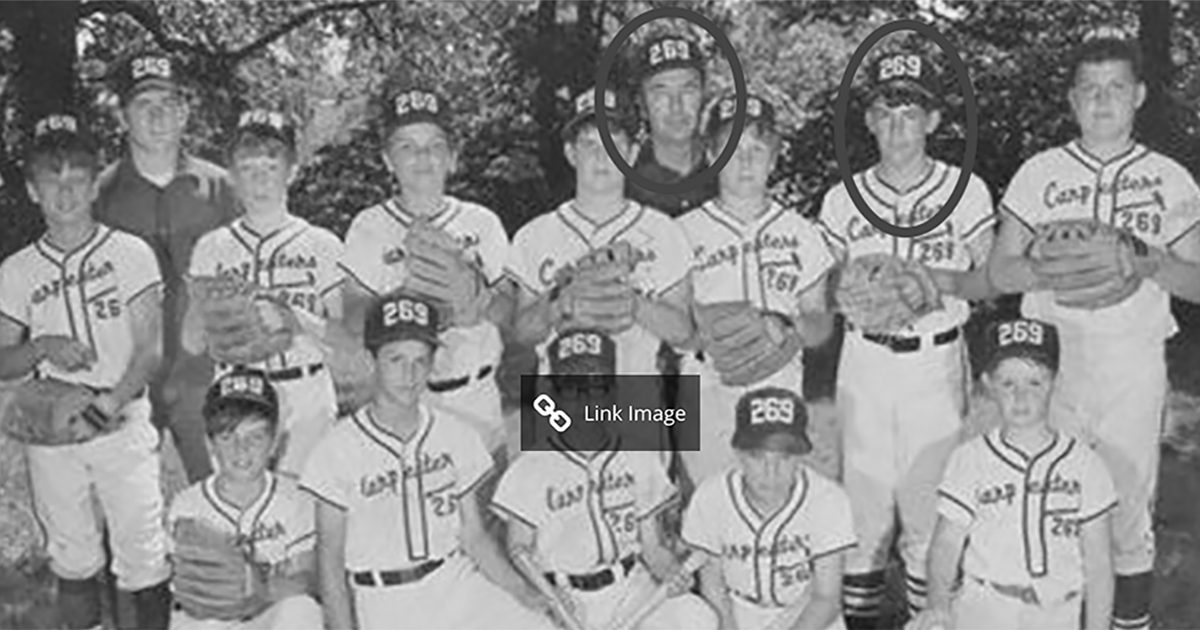Dad's Pitches Help Us Hit Home Runs in Life
July 3, 2023 •Jeff Owen l Arête Purpose Consulting

My father loved baseball so much that he once painted his house trim green — the dreadful shade that adorns the outfield fences of most ball fields.
Mom was not pleased when she returned from a brief day trip with friends and found Dad slathering the window frames and foundation of our white house with the color of Fenway’s Green Monster.
Because baseball meant so much to him and because he gushed over his artistic undertaking, Mom conceded the drab accent for the time being. Dad promised to apply a coat of the more appealing burgundy the next spring.
Dad ranked baseball a not-so-distant third behind faith and family in importance in his life. His summers were spent talking up replays with his plumber customers during the day, coaching Little League teams and playing catch with his kids in the evenings and settling onto the porch and listening to radio broadcasts of his beloved St. Louis Cardinals late at night.
Even while laying in his hospice bed and battling terminal cancer late in life, Dad wanted someone to read him the newspaper’s summaries and box scores from the previous night’s games. Through the pain, he said the Cardinals needed more power hitting from the middle of the lineup.
Why baseball? Why such passion for a game that has no clock, is prone to low scoring and considers someone a star when he is successful only once in three times at bat?
Sports Illustrated’s Joe Posnanski, baseball guru and historian, once published an excellent piece “Loving Baseball” — and asked: “What keeps the grand game great?”
“Think about this for a moment: What else but baseball connects us to America, of say, 1891?” Posnanski wrote. “What else has burned so long in our consciousness?…Is the surprising part that America still loves and breathes baseball, long after barbershop quartets stopped singing, long after couples stopped waltzing, long after boxers stopped hitting each other with their bare fists…Why in the heck do so many of us still love baseball?”
Later in the article, Posnanski admitted that his passion for baseball grew out of the love of time with his father.
Posnanski’s father, an immigrant, didn’t understand baseball at first. But he knew the importance of the sport in American history and therefore wanted to learn the game so he could teach it to his son.
“He believed that the duty of an American father was to find fireworks on Independence Day, to carve the turkey on Thanksgiving and to teach baseball to his son…” Posnanski wrote.
My father saw baseball as part of the American Dream. He grew up without his father, who died of pneumonia when my father was only two years old.
Fortunately, Dad had strong male role models in a principal at Lincoln Elementary School in Danville, Illinois and his Uncle Russell. Both men also happened to love baseball. When Dad was in the sixth grade, the principal took him to a World Series game in St. Louis.
Only many years after Dad’s death did I realize why baseball was so important to him. He saw the strategies and principles of the game as ways to live your life. They guided him when he needed direction as a young man. He believed character, decision-making and leadership could be learned during infield practice as well as the bottom of the ninth inning.
Posnanski’s essay helped me understand that Dad had a purpose when playing catch with us in the front yard along Harmon Street and shouting instructions from the Little League dugout.
Dad was teaching (in unabashed baseball lingo) life lessons to his children and the neighborhood kids he invited to grab a glove. Here are a few I remember so vividly because he said them so often:
“Between you and the baseball, who has the brains?…”
The Good Lord gave us the gift of reason. Use it.
“Don't let a grounder go between your legs. Don’t put the burden on your teammate to pick up the ball you missed…”
You, and only you, are responsible and accountable for your actions.
“Striking out the first three batters is impressive. Striking out the last three wins games…”
It’s your finish that really counts.
“A successful squeeze bunt can be just as good as a home run…”
Little actions are just as important as big ones.
“Always hit the cutoff man…”
Outcomes depend on people working together.
“If you ignore the third base coach’s signals, you will sit the bench…”
Respect and learn from those who have knowledge and experience.
“Always use two hands when catching the ball…”
Use every tool necessary to do the job well.
“Talk to one another in the outfield…”
Communication is essential to reach a common goal.
“If you can’t hit high fastballs, don’t swing at them…”
Find your talent, and commit yourself to be successful at it.
“Keep your eye on the ball…”
Observe and experience all of the wonderful things life has to offer, including a good baseball game on a warm summer evening.
Jeff Owen is a Partner with Arête Purpose Consulting and is a Partner with Clever Dogs Media. He loves baseball to this day and taught the game to his son.

